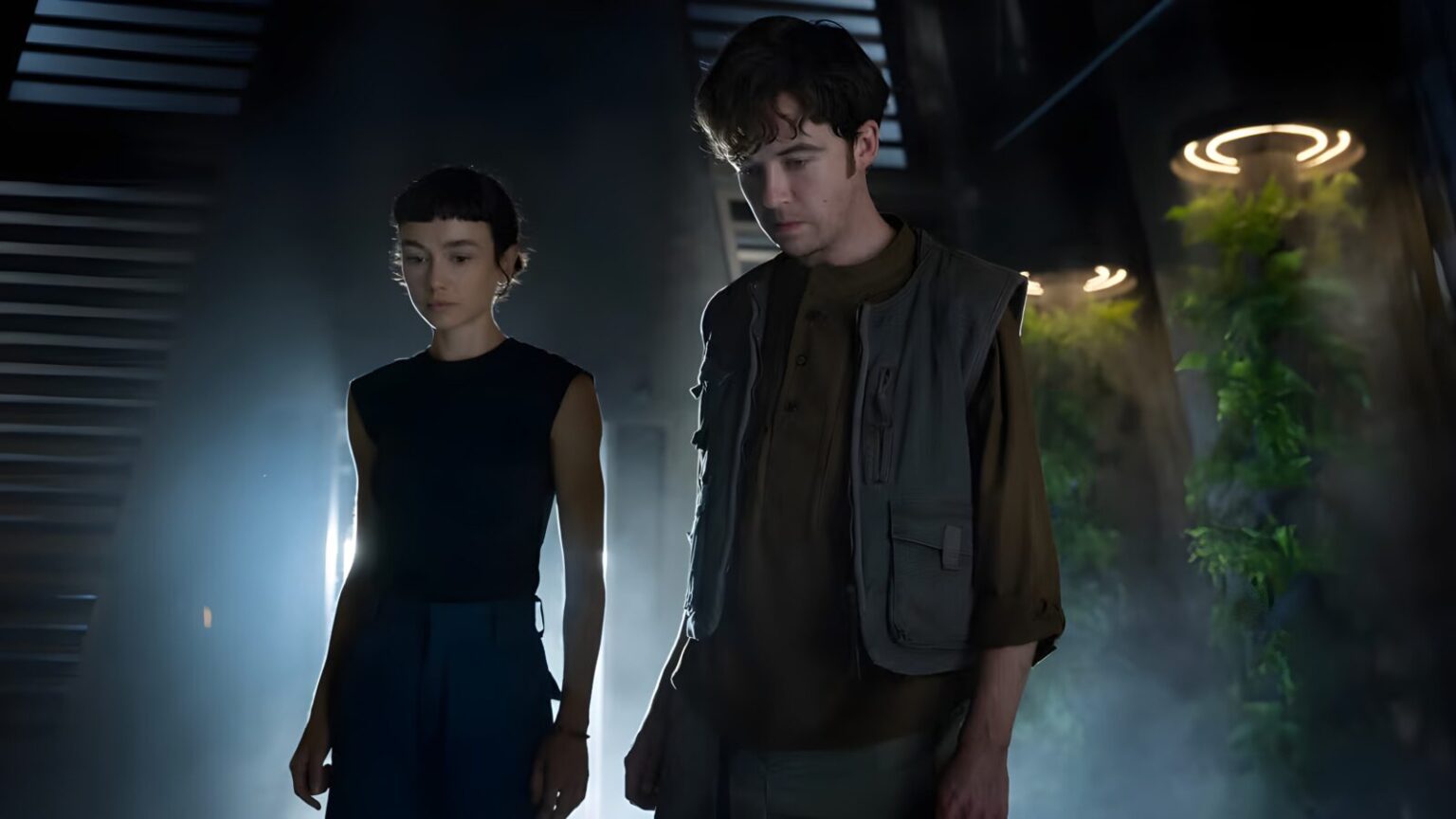TL;DR: The Alien: Earth Season 1 finale flips the script by letting the hybrids seize power, with Wendy at the helm of a messy, terrifying revolution. It’s Peter Pan meets Lord of the Flies with Xenomorphs, and it rules.
Alien: Earth
I should probably start this review of Alien: Earth with a confession: I did not expect this show to punch me in the throat with feelings. I went into FX’s latest Alien spinoff looking for a slick horror ride, a couple of chestbursters, and maybe some lovingly shot corridors filled with fog. What I got instead was a season-long meditation on identity, power, and what it means to grow up when the universe itself seems determined to keep you in a permanent state of helplessness. The ending, in particular, didn’t just flip the chessboard—it rewired the game entirely.
But let’s back up, because this isn’t just a finale worth explaining. It’s a finale worth living with. When the eighth and final episode of Season 1, “The Real Monsters,” landed, I sat there slack-jawed, not just because of the reversals, the blood, or the needle drop (though those were all exquisite), but because the show had managed to sneak up on me. Somewhere between the Peter Pan metaphors and the alien orchids, Alien: Earth became one of the smartest and weirdest sci-fi television experiments I’ve seen in years.
And yes, I’m going to talk about Wendy. And her Xenomorph. And what it means when a group of half-human, half-alien kids decide they’re done playing Peter Pan’s Lost Boys and start writing their own rules.
The Long Game of Power
The finale works because the season set it up so meticulously. We meet Wendy (Sydney Chandler) and her fellow hybrids—the so-called Lost Boys—early on as children trapped in bodies that can punch holes through reinforced doors. They are literal gods in waiting, but narratively speaking, they’re also kids on a playground, convinced the swingset belongs to them because that’s what the adults said. Neverland, Prodigy’s creepy island laboratory, is supposed to be their paradise. It’s only as the season wears on that paradise starts to smell a lot like prison.
The brilliance here is that the hybrids’ disillusionment mirrors every grimy moment in adolescence when you realize the adults around you are winging it at best and cruel at worst. It’s the first time you clock that your parents are flawed, your teachers are biased, or your so-called protectors have an agenda. For the Lost Boys, that realization comes with trauma: manipulated memories, forced experiments, dead friends. And because this is Alien, not Degrassi, every revelation comes soaked in dread and viscera.
By the time Nibs rips a soldier’s jaw clean off in episode 7—an act that’s both exhilarating and horrifying—the show has laid the groundwork for the hybrids to see themselves differently. They are not pets. They are not patients. They are weapons waiting to decide who they’re aimed at.
Wendy’s Transformation: From Child to Monster to Something Else
The question at the core of the finale is not, “Can the hybrids fight back?” We already know the answer to that. The real question is: What will they become once they do?
Wendy’s arc is the linchpin here. Chandler plays her as someone teetering constantly between fragility and ferocity, the kind of character who can look like a scared teenager one moment and then stare you down with the cold detachment of a predator the next. Her final speech—“All this time, we’ve been afraid of them. But I think they should be afraid of us.”—isn’t just badass; it’s heartbreaking. Because underneath that declaration is the admission that innocence is gone forever.
It’s a Peter Pan story turned inside out. Boy Kavalier (Samuel Blenkin) prances around quoting Barrie, trying to keep his Lost Boys suspended in childhood forever. But Wendy knows the truth: Neverland isn’t a fairy tale. It’s a lab built on bones. If growing up means facing the ugliness, then fine—she’ll grow up. But she’s going to drag everyone else into adulthood with her, whether they like it or not.
What makes the finale so unnerving is Wendy’s identity crisis. She’s not fully human, not fully alien, not even fully herself. Joe questions whether she even is his sister anymore, or just a ghost in borrowed flesh. Her connection to the Xenomorphs and the Maginot aliens underscores this existential murkiness. She envies their purity—at least the aliens know what they are. She doesn’t. And when she weaponizes that uncertainty into a new form of authority, it’s both a triumph and a tragedy.
The Haunted House Reversal
The image that sticks with me from the finale is not the blood or the monster but the sheer glee with which the Lost Boys turn Neverland into a funhouse of fear. Video feeds glitch, doors slam, elevators trap their enemies. It’s a home invasion movie, except the home is a fortress-lab and the invaders are the children who were supposed to be its crown jewels.
There’s something delicious about watching the hybrids put their tormentors in the same cage where they once languished. “Now we rule,” Wendy says, and the symmetry is brutal. Every Peter Pan reference, every infantilizing gesture by Boy Kavalier, every power imbalance is finally inverted. The kids are in charge, and the grown-ups are the ones cowering.
It’s a victory, sure, but a messy one. Because what does it mean for a group of traumatized hybrids to rule? The show doesn’t let us bask in the revolution for long. The threats are already lining up: Weyland-Yutani, the alien orchid, T. Ocellus lurking in Arthur Sylvia’s corpse. It’s a cliffhanger designed not just for plot continuation but for thematic continuation. If Season 1 was about growing up, Season 2 promises to be about what kind of adults they’ll choose to be. Lord of the Flies in space, basically. Only with a Xenomorph potentially mounted on a stick like Piggy’s head.
Why the Ending Works
The ending of Alien: Earth works because it understands the DNA of the Alien franchise. These stories have always been about survival, yes, but also about corporate hubris, bodily autonomy, and the horror of being reduced to a specimen. By letting the hybrids seize control, the show reclaims those themes from a new angle. For once, the monsters—or at least the half-monsters—are the ones holding the clipboard. And it forces us, the audience, to sit with a deeply uncomfortable question: what if the monsters don’t want to be human, but don’t want to be monsters either?
In that liminal space is where the franchise finds new life. Wendy is not Ripley 2.0. She’s not even Shaw or Daniels. She’s something else, something scarier. A protagonist who might also be an antagonist. A leader who might also be a tyrant. That ambiguity is what makes the ending not just shocking but haunting.
Final Verdict
Alien: Earth Season 1 ends not with closure but with a rupture. The Lost Boys have grown up, whether they wanted to or not, and the adults who once lorded over them are now the ones locked in cages. Wendy has embraced her in-betweenness, turning it into power, even as it leaves her with no clear identity. The finale sets the stage for a second season that could veer into Lord of the Flies territory, complete with the promise of further Alien horror and corporate meddling.
It’s messy, it’s bleak, and it’s thrilling. Exactly what a good Alien story should be.







